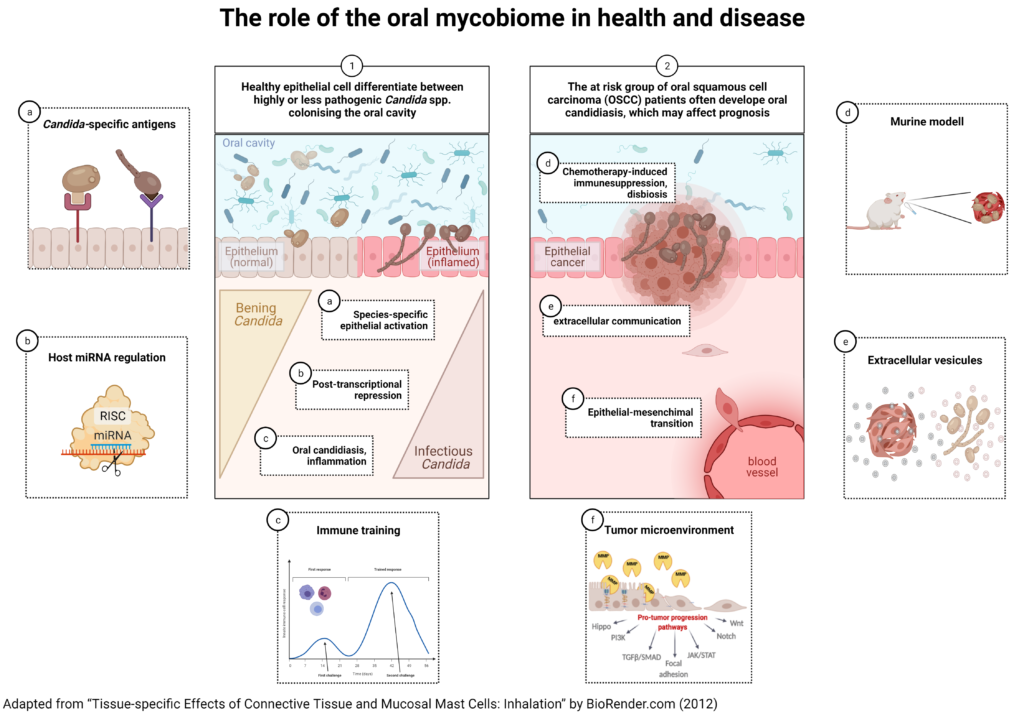Menu
Home > Teams > Immuno-inflammatory Diseases > HCEMM-USZ Fungal Pathogens Research Group
Group Leader: Prof. Attila Gácser PhD, DSc
In his HCEMM project (entitled as ‘The link between fungal colonization and cancer progression’), his research group aims to reveal mechanisms activated during fungi-driven oral cancer (oral squamous cell carcinoma) progression in vitro and in vivo.
The group’s main research interest involves the exploration of the oral mycobiome’s role in health and disease. Previously, the group has shown that through host miRNA regulation healthy epithelial cells actively discriminate between highly or less pathogenic opportunistic pathogenic Candida species such as C. albicans and C. parapsilosis in the oral cavity, that might be tightly associated with the presence of species-specific antigens. These results also raised a potential in immune training with C. parapsilosis that is more likely to induce tolerogenic responses from healthy oral epithelial cells under physiological conditions.
Apart from physiological conditions, another aspect of the group’s investigations includes exploring the role of Candida species in disease, particularly in OSCC progression. It has been shown that oral squamous cell carcinoma patients frequently develop oral candidiasis and the average fungal burden of neoplastic epithelial surfaces is higher than that of healthy surfaces, suggesting a direct interaction between yeasts and tumorous cells. Based on these findings, our group now focuses on the thorough exploration of yeast-OSCC interactions in vitro and in vivo by examining the effect of fungal presence on pro-tumor progression pathways, matrix metalloprotease activity and oncometabolite production. Potential mutual interactions are also examined at the level of extracellular vesicles.

This project has received funding from the European Union’s Horizon 2020 research and innovation programme under grant agreement No 739593. HCEMM supported by EU Programme: H2020-EU.4.a. – Teaming of excellent research institutions and low performing RDI regions. Project starting date was 1 April 2017.






